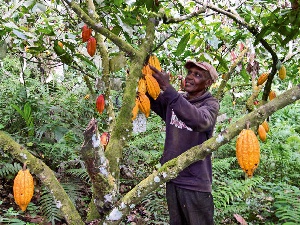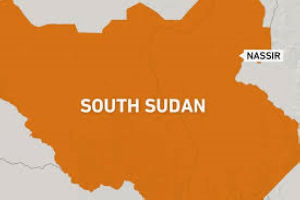According to the World Economic Forum, a major opportunity for increasing growth through a “smart” and coordinated approach can be found in the agricultural sector.
Agriculture today accounts for about 32% of GDP in Africa and offers greatest potential for poverty reduction and job creation, particularly among vulnerable rural populations and urban dwellers with limited job opportunities.
Growth generated by agriculture in sub-Saharan Africa is estimated to be 11 times more effective in reducing poverty than GDP growth in other sectors – a vital multiplier given that 65% of the continent’s labour force is engaged in agriculture. Yet the sector has suffered sustained neglect and, as a result, Africa has gone from being an exporter of agricultural products in the 1960s to a net importer of agricultural and food products today.
Agriculture is believed to be the original occupation of mankind since creation. In Ghana, Agriculture is an established economic sector which consists of a variety of agricultural products and provides employment on a formal and informal basis.
Ghana produces a variety of crops in various climatic zones which range from dry savanna to wet forest and which run in eastwest bands across Ghana.
Agricultural crops, including yams, grains, cocoa, oil palms, kola nuts, and timber, form the base of agriculture in Ghana's economy In the year of 2013, agriculture employed an estimated 53.6% of the total labor force in Ghana.
The above suggest that more than half the population of the country derive their livelihoods from farming activities. It is in this light that the Akufo-Addo-led government should be commended for introducing such an innovative project/programme dubbed Planting for food and jobs which doesn’t only seek to boost agric production, but to create over 750,000 new jobs.
The programme which is structured along the lines of the infamous ‘Operation feed yourself’ programme adopted in the 1970s by the then Acheampong military regime to develop self-reliance in agriculture at the time.
The programme is expected to focus on the production of maize, rice, soybean, sorghum and vegetables. Other crops are expected to be adopted in subsequent years with the provision of improved seeds, supply of fertilizers, provision of dedicated extension service, marketing and e-agriculture.
This is expected to provide ready raw materials to feed the one-district one-factory policy expected to be implemented soon.
Already, farmers in the Volta Region have expressed readiness to embrace this campaign. They hope that one key challenge they face, being their inability to get ready market for their produce, will be addressed by this initiative.
Currently, some bags of paddy rice are locked up in various homes and farmyards in the Ho Municipality and many rice farms across the country because farmers are unable to get buyers for their produce. The state therefore needs to move a step further from merely working to increase yields to a more sustainable programme by ensuring that there is ready market for crops produced.
Again, I entreat government to take the initiative of ensuring that produce from this laudable initiative feeds other programmes like the one-district one-factory, School feeding programmes etc. There should be a conscious effort to ensure that food supplies to all government Schools and facilities are all locally made produce to help boost and encourage the local farmer.
This within a few years, I believe can guarantee a reduction in food imports into the country.
Opinions of Friday, 2 March 2018
Columnist: J. F. Davis















